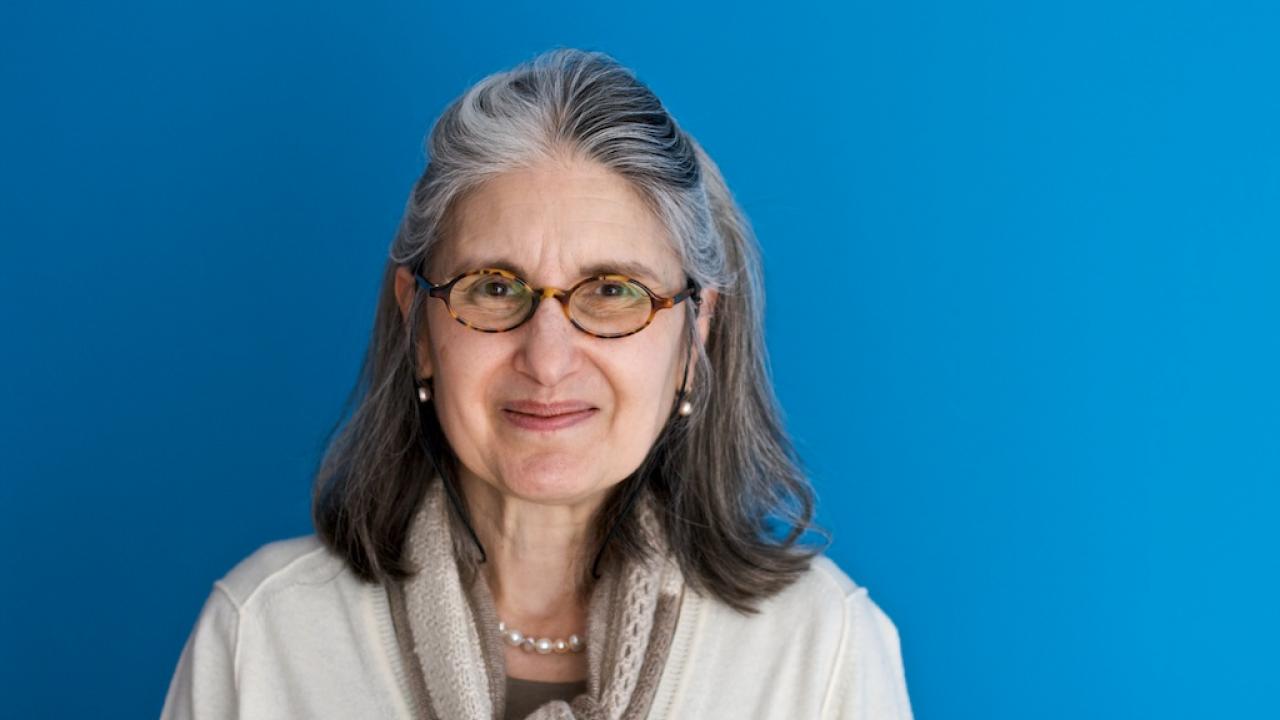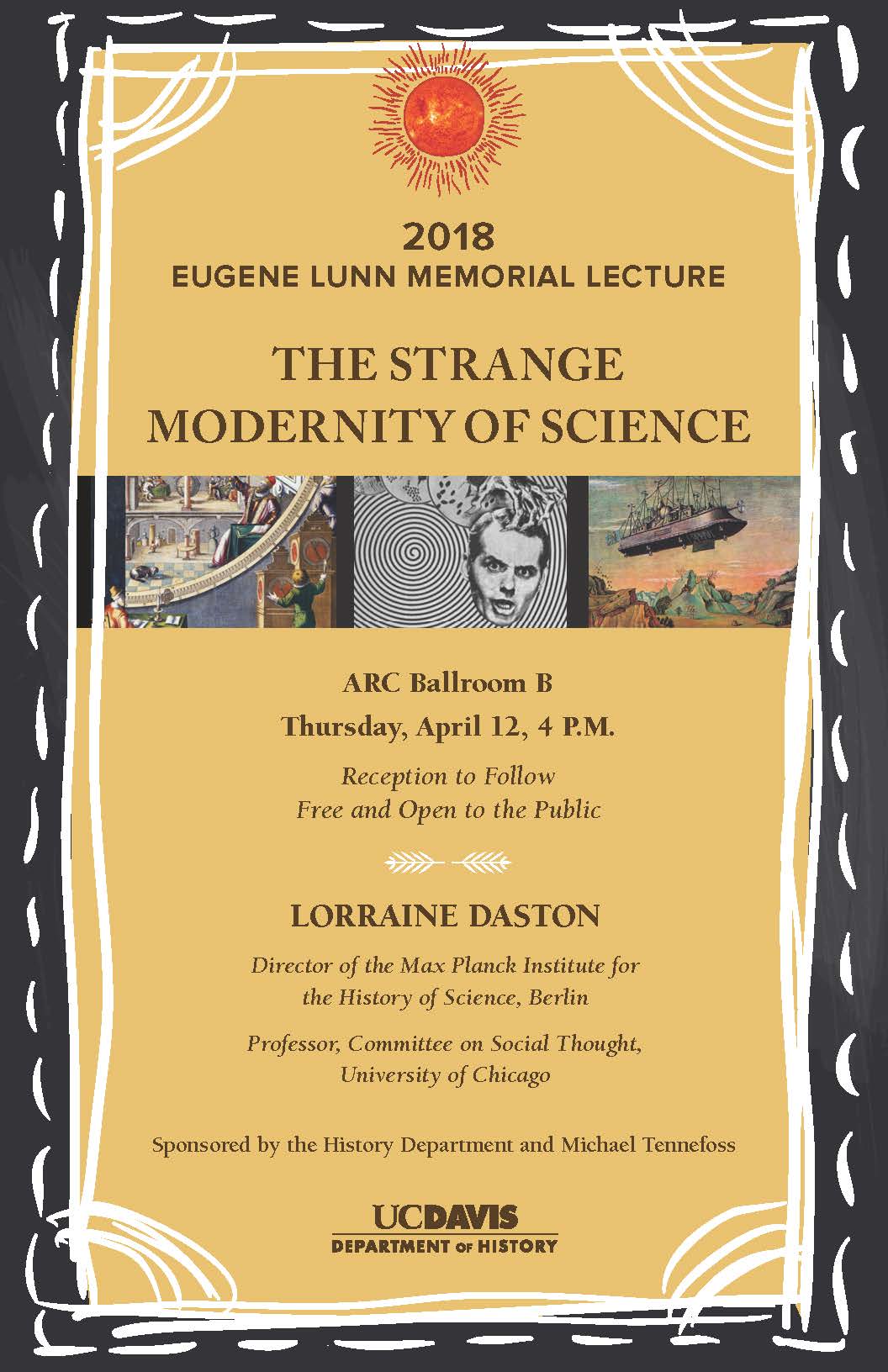
Lunn Lecture: Did Science Really Launch the Modern Era?
Noted historian of science Lorraine Daston to talk on modern society's ‘Big Bang.’
Lorraine Daston, executive director of the Max Planck Institute for the History of Science in Berlin and professor in the Committee of Social Thought at the University of Chicago, will give this year’s Lunn Lecture, “The Strange Modernity of Science,” on Thursday, April 12.
Her talk will begin at 4 p.m. in Ballroom B of the Activities and Recreation Center (ARC).
Daston was recently awarded the international Dan David Prize for her contributions to the history of science. The annual award includes a $1 million prize.
She has published on a wide range of topics in the history of science including the history of probability and statistics, wonders in early modern science, the emergence of the scientific fact, scientific models, objects of scientific inquiry, the moral authority of nature, and the history of scientific objectivity.
Her recent books include (with Paul Erikson et al.) How Reason Almost Lost Its Mind: The Strange Career of Cold War Rationality and (co-edited with Elizabeth Lunbeck), Histories of Scientific Observation.
Examining a narrative that won't die
In her talk, Daston will examine the prevalent view in the history of science and in many other fields of study that the Scientific Revolution in Europe was a driving force of modernization.
“At latest by the mid-20th century, modernization became the Big Bang of all transformations, and models of transformation fixated on that seismic moment,” Daston said.
“And almost every theory of modernization … includes the Scientific Revolution of early modern Europe as an important component and even motor of modernity. But how, exactly?
"My aim in this lecture is to explain how and when this narrative ... emerged in the early 20th century — and why it won't die, despite the best efforts of the best scholars to bury it with a stake through its heart."
The lecture is free and open to the public. A reception will follow.
See full-sized poster for this event.
About the Lunn Lecture
The annual Lunn Memorial Lecture honors the late UC Davis cultural historian Eugene Lunn, who during his 20 years on the faculty distinguished himself as an esteemed teacher and mentor, and an influential scholar in the field of modern European intellectual history. He died in 1990.
— Kathleen Holder, content strategist in the UC Davis College of Letters and Science

